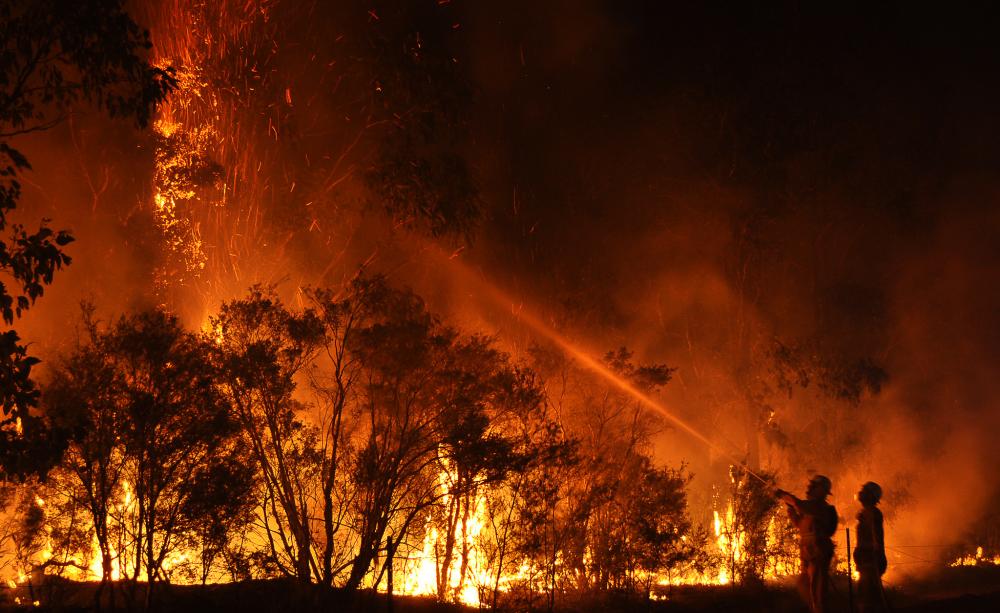WHO Secretary-General Dr. Tedros Adhanom Ghebreyesus, warned: “We cannot sleepwalk through this health emergency any longer.”
The evidence is clear that climate change is already having a serious impact on human lives and health. It threatens the essential ingredients of good health — clean air, safe drinking water, nutritious food supply, and safe shelter — and will undermine decades of progress in global health.
Direct impacts
Climate change is translated into human suffering and deaths. Looking at just four health risks that increase with climate change — heat exposure, diarrhoea, malaria, and undernutrition — WHO determined an additional quarter million people a year will die from these causes between 2030 and 2050.
The true cost of climate change is felt in our hospitals. And increasingly, hospitals are insufficiently equipped to deal with the threat.
From the tropics to the arctic, climate and weather have powerful direct and indirect impacts on human life. Everybody will be affected by a changing climate, but the most disadvantaged, vulnerable and poor populations will suffer the most.
With climate change comes rising food and water insecurity, higher food prices, loss of income and livelihood opportunities, negative health effects, and population displacement, threatening to undo the global progress in sustainable development that has been made in the last decades.
By acting as a poverty multiplier, climate change further widens the global inequality gap that persist today.
Premature deaths
The same human activities that are destabilizing the Earth’s climate also contribute directly to poor health.
The fossil fuel combustion that is largely driving climate change also is a major source of air pollution, leading to 7 million premature deaths worldwide every year. This is equivalent to the combined total population of Ireland and Wales.
Phasing out fossil fuel use will both limit global heating and reduce air pollution, providing citizens with clean air. Meeting the goals of the Paris Agreement could save about one million lives a year worldwide by 2050 through the reductions in air pollution alone.
The health benefits far outweigh the costs of meeting climate change goals, and the benefit-to-cost ratio is even higher in countries such as China and India.
Steps to reduce greenhouse gas emissions have both immediate and long-term positive health effects.
Public transport
Promoting the safe use of public transportation and active movement — such as biking or walking as alternatives to using private vehicles — reduces both carbon dioxide emissions and air pollution. It can also reduce traffic related injuries and increase levels of physical activity which in turn helps prevent diseases like diabetes, heart disease and cancer.
Improved public transport will even help improve access for vulnerable groups, including children, the elderly, people with disabilities, and lower wage earners, enhancing health equity.
Climate action also brings in large economic co-benefits: actions to meet the Paris goals would cost around 1 percent of global GDP, while around 10 percent of global GDP is currently spend on health.
Acting on climate will reduce the health burden and its cost. When health is taken into account, climate change mitigation is an opportunity, not a cost.
More than half the world’s population now lives in cities, and many of the necessary actions to reduce carbon emissions, improve health and increase resilience will be within urban environments.
Political support
Local and city governments are well-placed to see this necessary transformation through. The local authorities are often wholly or partly responsible for services including energy provision, transport, water, sanitation, and health.
City governments can more easily gain strong political support to make local changes and are ideally placed to involve a broad range of actors to implement those changes.
In many regards, the future of transformative climate action and the future health of citizens will depend on cities.
To boost global ambition and accelerate actions to implement the Paris Agreement on Climate Change, UN Secretary-General António Guterres will host a Climate Action Summit on 23 September to meet the climate challenge.
The Summit hopes to showcase a leap in collective national political ambition by demonstrating massive movements towards a more sustainable economy.
WHO and a coalition of countries and institutions are building momentum towards the September summit by encouraging governments and financial institutions to commit to actions that both reduce carbon emissions and bring positive benefits to people’s health and wellbeing, such as by reducing air pollution or investing in climate action.
Acting on climate will lead us to a world where everyone can enjoy health and well-being. We can not afford the alternative.

